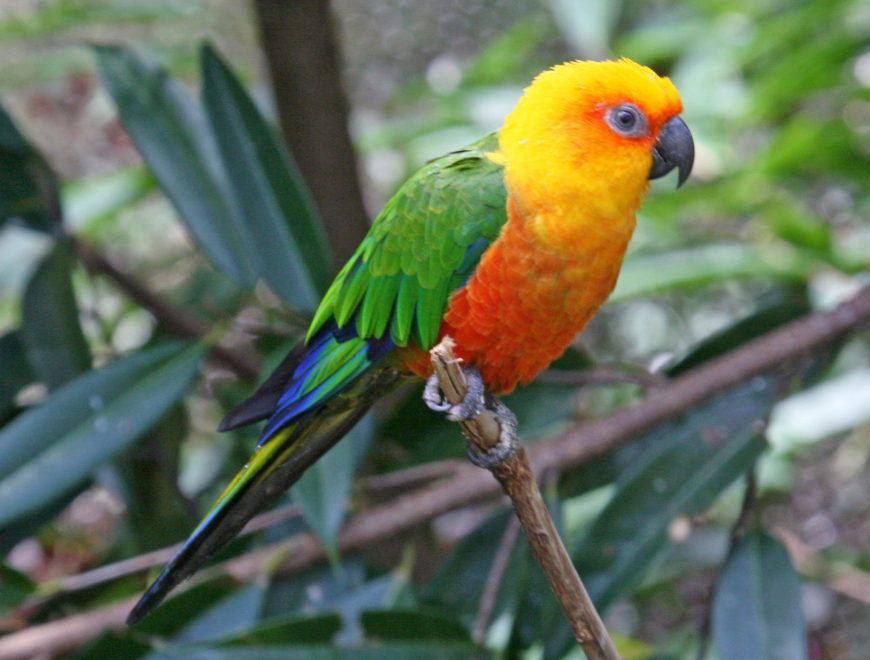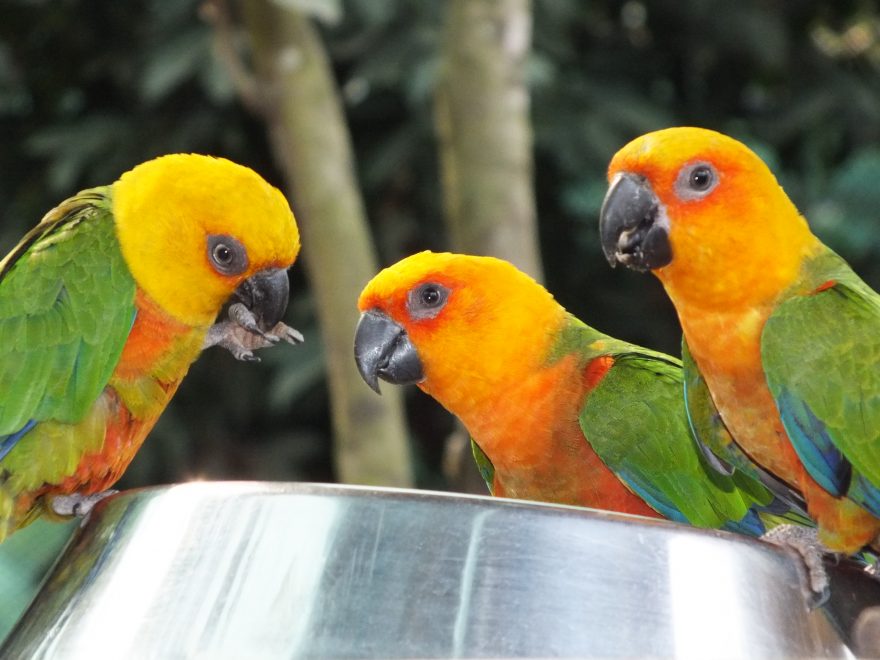The jenday conure—also known as the jandaya parakeet—is a medium-sized parrot native to northeastern Brazil. Although not quite as popular as the closely-related sun conure, the jenday conure is very well established in aviculture and is commonly kept as a pet.

Housing & Compatibility
Jenday conures should only be housed in single-pair aviaries. They can be very aggressive and may kill other birds with which they do not get along—including members of their own species. Once their young achieve independence, they must also be removed from the aviary for their own safety.
Jenday conures can be very loud. They will squawk and screech at a volume far greater than one would expect for a bird of their size. It may be inappropriate to keep these birds if you live in a dense residential area.
An adequate amount of flying space is necessary to ensure good fitness and minimal stress. A large traditional-style aviary of approximately 3 meters (10 feet) in length should be used. Natural perches made from non-toxic branches should be provided. They will need to be replaced periodically as jenday conures enjoy chewing.
Diet & Feeding
A quality medium parrot seed mix forms the basis of the jenday conure’s diet. Seed should be stored in an airtight plastic container to prevent exposure to vermin and moisture. Seed can be soaked or sprouted to improve its nutritional value.
A good diet includes a mix of fruits and vegetables, such as apple, pear and corn. Leafy green vegetables are essential—silverbeet (chard), bok choy, kale, and endive are especially nutritious. Some have been known to consume live food such as mealworms.
Many breeders prefer to feed pellets instead of seed. Pellets provide a more balanced intake of vitamins and minerals and produce less waste. Commercial supplements such as egg & biscuit mix can be added to the diet to provide additional protein during the breeding season.
Do not feed anything from the list of forbidden foods.

Breeding
Jenday conures will breed throughout the year if the conditions are right, however breeding should be discouraged during the coldest and warmest months.
They breed in hollow logs or nest boxes lined with sawdust or pine shavings. A medium-sized nest box that’s about a foot deep is ideal, but consider that different birds have different preferences for the size and shape of their box.
Most parrots prefer a nest box opening just large enough to squeeze through, so a separate hatch for cleaning and inspection should be added to the nest box. Different nesting receptacles should be offered to determine which the pair prefers to use. Disused boxed should be removed when laying has commenced.
Jenday conures generally lay between 3 and 5 eggs. Young or inexperienced birds may lay as few as two. The hen will incubate the eggs for roughly three and half weeks. After hatching, the young birds will remain in the nest for seven weeks before fledgling. They will be fully independent from their parents approximately three weeks after fledging.
After the second or third clutch in a year, the nesting box should be removed. Over-breeding can substantially effect the health and wellbeing of the jenday conure hen.
Sexing
Jenday conures are sexually monomorphic and require a DNA test to accurately sex.
Health
A strict worm control regime and regular preventative treatment for bacterial and fungal infections is critical to ensure the long-term health of any bird.
With proper care, a jenday conure may live for up to 30 years.
As Pets
Jenday conures are smart and inquisitive, and make for excellent pets. They require a significant amount of time with their owner and can become assertive and prone to biting if given insufficient attention.
They possess a moderate talking ability and are skilled at sound mimicry.